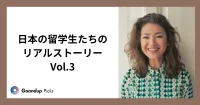The standard greeting we want foreigners to use, "Good work."

Every foreigner living in Japan has heard the phrase "Otsukareta shimasu" at least once. It is a greeting that is exchanged without fail every day, especially in Japanese offices.
This phrase is commonplace for Japanese people, but it is said that there is no phrase that fits "Oyasumi desu shimasu" in other countries. Japanese people use this greeting in various situations without thinking too much about it, but it may be a little difficult for foreigners to master it.
In this issue, we will introduce in detail the usage of this useful greeting, "Good evening.
What does "Good job" mean?
For Japanese people, "Oyasamae desu desu" is an indispensable phrase. Japanese people use it without thinking about the meaning or situations, but sometimes there are people who use it incorrectly. I would like everyone to use it correctly.
The greeting "Good work" is used to express gratitude for the effort of a person's work or task.
The word "tired" is in there, but the phrase can be used to say, "Thank you for doing that job," or "Are you okay? Are you tired?" and so on. Japanese people frequently use this phrase to express their feelings to each other because it contains positive meanings such as gratitude and kindness.
When do you use "Good work"?

The main situations in which "Otsukasaimasan desu" is used are in business situations. It is used for people who have finished their work or are leaving the office.
The key point to note is that it is not to be used with people outside the company or with customers. It should always be used between employees of the same company. For example, if you have a visitor from another company and you are leaving, you cannot use the phrase, "Good work, sir" because it is rude.
An exception to this rule is for stores offering relaxation-related services, such as massage and hair salons, which may use "Good evening" for their customers.
This is a greeting that means "thank you for your (long) time" for the cooperation of the customer when you have provided a service that requires the customer's cooperation, such as sitting for a long time or staying in the same position for a long time. In this case, it is not a rude nuance.
What's the difference between that and "Good job."
Oita-sama desu" and "Oita-sama desu" are similar, but the situations in which they are used are different. As those of you who are studying Japanese will know, there is a difference between past tense and present tense.
Good morning" can be used at any time during the workday, from morning to mid-day and until you leave the office.
When you arrive at work, you can also use "Ohayo gozaimasu" in the same way. If you see a colleague who has already arrived at work and started working, you can say, "Good morning. Good work!" you can add to the morning greeting and express your appreciation for the fact that they have already started their work.
Incidentally, in the office, "Good morning" is used in the morning, but "Hello" and "Good evening" are not used. We recommend using "Good morning" except in the morning.
Also, during the day in the office, you will pass by and talk with colleagues and other staff members. At such times, I greet them with a light nod of the head and a "Good morning. Saying "Good morning" over and over again can feel uncomfortable, but "Good evening" is a convenient phrase that allows you to greet people lightly each time you meet them.
What would be a better way to say, "Good work."
Thank you for your service."
The most important thing to keep in mind is the distinction between the use of "Thank you for your efforts" and "Good work. If you make a mistake in this, you may cause discomfort to the other party, so you must know.
While "Good work" can be used for anyone in the company, "Gohasama-sama desu" is a phrase to be used for people who are subordinates or junior staff. It should never be used to address a superior, a senior, or someone outside the company. It may be used to a colleague who joined the company at the same time.
This may be a small detail, but for example, cleaning staff and security guards in office buildings hired by the company are not your subordinates, although they are employed by the company, so instead of "Thank you for your hard work. It is recommended to use phrases such as "Thank you for all your hard work. Depending on your relationship with that staff member, you may give the impression that you are looking down on them, so please be careful.
Excuse me."
In Japan, "sayonara" is not often used when leaving the office. To those who leave the office before you, you say, "Good-bye" to express your appreciation for their hard work during the day.
Then, when you leave the office before the other person, you use "ogottareta sasai shimasu". If the person you are saying this to is also leaving soon, it is okay to say "Good evening. Good night. When you are still working, you can say, "Good evening.
I'm back." and "Welcome home/welcome back."
When returning to the office from an outing, both parties can say, "Good evening," but the person returning to the office often uses "I'm back" and the person welcoming them to the office uses "Welcome home.
If you think "welcome home" is a little too casual for your boss or senior, you can say a more polite "okaerimasemase" (welcome home).
However, if you have a close relationship with a boss or a senior employee, and you feel that "Mase" is too ostentatious, "Okaerinasai" is fine. It is even better to say, "Welcome home, thank you for your hard work." is even better.
Can it be used outside of work?
In fact, this "Otsukare-sama" appears quite often in non-business situations. In chat exchanges between friends, the initial greetings "Good work! or "Good work! are also sent by many people.
You never know what your friends are going through right now, and I am sure that they are also studying, working, raising children, or doing something else every day for sure. Therefore, you should congratulate them for their daily life and say "Good job! to communicate with them.
I hope you will all try to use "Oyasama desu" and "Oyasama desu" in your communication with Japanese people.






